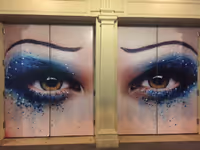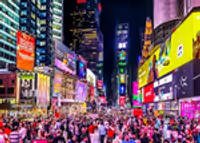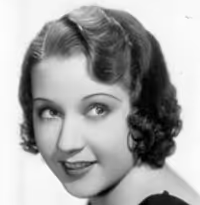How to Fix the Broadway Model
#25How to Fix the Broadway Model
Posted: 1/17/24 at 4:32pm
RWPrincess said: "One of the best things that can help get more suburban folks in is to fix the LIRR schedule. Opening the $11B Grand Central Terminal last year basically cut service to Penn Station in half instead of adding Grand Central as incremental service, If they reroute trains after 8pm from Grand Central to Penn, that will give riders multiple options per hour to get home after a show. The same thing needs to happen on weekends. They also need to dispatch longer trains, especially in the hour after shows let out. Right now service is mostly hourly with poor waiting facilities in the terminal, I wish shows would stop advertising at LIRR stations until the schedule is fixed. Maybe the lack of ad revenue will finally force the MTA/LIRR to do something. Politcians and media only speak up when it comes to commuters but there is an entire subset of people who travel off-peak and that would include the theater crowd,"
I keep hearing this complaint from Long Islanders I know as well. Most Broadway theaters are literally the exact walking distance from Grand Central as they are from Penn. Some (Hudson, Belasco) are even closer to Grand Central.
#26How to Fix the Broadway Model
Posted: 1/17/24 at 4:50pm
Comps for awards voters or press are a minuscule production cost- if you gathered all those folks into one performance, they likely wouldn’t even fill the house. They’re not responsible for adding to ticket prices.
And who would want to pay per show to be a voter?
#27How to Fix the Broadway Model
Posted: 1/17/24 at 4:52pm
chrishuyen said: "For the HLL package: it's weird that it's not posted anywhere in the press releases, but I want to say that when I looked into it, it averaged around $60 or $70 a ticket. Certainly on the "cheap" side of Broadway tickets, but still nothing compared to the rush price. The other thing with it was I think they could all be used on the same day, so if you had a group of 4 people, you could take advantage of it to see the show together."
It's a fine idea in theory but like you said, I assume any show that does this is already going to have a regularly available rush/lotto/TDF and no shortage of inventory.
Initiatives like this tend to take up a lot of time, they come out of the desperation to "let's just TRY something," and more often than not the results are nill.
It's like when some shows have done cheap preview promotions where you have to walk across hot coals to access the tickets in-person at the box office or in limited time windows. The ones that actually move mass numbers of seats are the ones where the tickets are actually cheaper than rush and available online (Something Rotten, Shucked, I assume the upcoming My Son's Queer), with the strategic goal of filling the house.
#28How to Fix the Broadway Model
Posted: 1/17/24 at 4:56pm
Okay, I can accept that as being the case.
I’d still like to see comps be gotten rid of for other reasons. I would trust awards more when I know the judges verdict is reflective of a real ticketbuyer’s experience. Not from the best seats in the house at no expense.
(Speaking generally, not casting shadow on you personally, Kad)
#29How to Fix the Broadway Model
Posted: 1/17/24 at 4:58pm
“Who would want to pay per show to be a voter?”
A real theatre lover!
#30How to Fix the Broadway Model
Posted: 1/17/24 at 5:18pm
Jay Lerner-Z said: "“Who would want to pay per show to be a voter?”
A real theatre lover!"
A real theatre lover with a lot of money.
#31How to Fix the Broadway Model
Posted: 1/17/24 at 5:20pm
I've had an idea in this respect for the past few years. As a working producer, I'm well aware it would take time, and a lot of unprecedented (only on the level I propose, though; one-offs have occurred before) agreements from every union involved plus the Broadway League, but I think it's a possible solution: a hybrid model with a live in-person ticket and simultaneous streaming at a much more affordable price point.
If you want to know what the results looked like when I ran the numbers, scroll down to the spoiler tag. Otherwise, read the logic that led to this discovery.
Before the pandemic, everything -- both theater and film -- was gradually moving to world-level streaming, on phones and other devices. Trendsetters like BroadwayHD and other streaming services, in addition to hosting pre-existing material, began assessing the possibilities of live-streaming individual performances of shows and, more importantly, setting a precedent for this idea by doing the math to figure out the brave new world where film and stage could mesh (i.e., the perfunctory groundwork of striking deals with authors, cast, etc., that can be referred to by future producers).
Needless to say, the virus sped up this assessment considerably, as outbreaks led to increased media consumption in many countries around the world. Efforts to stem the spread included social distancing, self-isolation, and quarantining when ill, and with many individuals globally seeking in-home entertainment, it was inevitable, given their popularity, that streaming platforms would see significant user growth. It was also inevitable that the cries that all theater should be professionally filmed and released for occasions like this would grow even louder than they've already been.
Colleagues of mine, major music stars in the rap world, began experimenting with something intriguing during lockdown. They've marketed and presented live-streaming events with cheap ticket prices -- $10 or less. You know, the kind of thing someone could reach into their pocket and grab, or at least ask someone to loan them. And they've been seeing a good deal of financial success from it. Granted, they don't have a lot of options to translate that into something bigger (a concert is a concert, no matter who makes a guest appearance), but I think they've inadvertently hit on something brilliant. Possibly even the basis for a hybrid model, weaving together a live performance with streaming of various kinds.
I see the complaints about premium tickets in this thread. I wholeheartedly agree. A friend recently confided, "It used to be cheaper to sit in the cheap seats of a Broadway matinee than it was to see the first run of a movie. Broadway is now for out-of-towners. I'm solidly upper middle class, and if I weren't comped because I'm a known director, I couldn't afford it. Going to the theater -- with three kids? 1,500 bucks with parking, food, etc.? No. Prices some time ago have made [it] something expensive you do, like going to see a live football game in the good seats."
And that got me thinking: even if theater, for whatever godawful reason, remains the playground of those with cash to burn (be they rich, tourists, or both), maybe they continue to go see it live at whatever price they blindly fork out (like people spend ridiculous amounts to see the Super Bowl or New Year's in Times Square in person -- both of which, believe it or not, the current Broadway ticket is still largely cheaper than), and an affordable simultaneous streaming ticket for the rest of us (say, $10 to $30 apiece), which could sell tens of millions if everyone preaching about accessibility supports it consistently and doesn't pirate, can be the new primary income of the Broadway, West End, etc., of the future.
So, has this been tested in some sort of mathematical model to assess viability? It has. Check out the results:
My team and I ran the numbers on just Internet clicks for one of our pieces, and it doubled the backers' investment in four months in a best-case scenario.
Happy to share those numbers with anyone serious about making it work.
Broadway Legend
joined: 5/1/05
Blocked: After Eight, suestorm, david_fick, emlodik, lovebwy, Dave28282, joevitus, BorisTomashevsky, Seb28
#32How to Fix the Broadway Model
Posted: 1/17/24 at 9:43pm
The current model seems to be working when almost every Broadway theater will be occupied this season.
i don’t remember the last time when this many theaters were occupied at the same time!
Somehow producers are able to still find investors willing to part with their money to risk it all for Broadway. I do have a feeling some of these investors are veteran Broadway investors who are just reinvesting the profits they’re making from moneymakers like Wicked, Hamilton, etc.
#33How to Fix the Broadway Model
Posted: 1/17/24 at 10:06pm
I simply hope most (if not all) of the spring musicals eventually release cast recordings, as I probably won’t catch everything live. With so much to offer this season, there’s a lot to listen for - and to discuss on these boards!
dangeresque49
Stand-by Joined: 4/20/19
#34How to Fix the Broadway Model
Posted: 1/17/24 at 11:01pm
Why is no one talking about rent? These shows just like every business in America who does not own their own building is forced to set prices based on rent. The landowners are the ones setting the pricing for the minimum.
It's no surprise to see the landowners consolidating their theater ownership. Until producers and theater guests are willing to walk away the landowner cartel will continue to push prices higher. Even in an environment of "competition" among shows the landowners push the minimum prices higher and higher.
People say London is cheaper because of casts being paid less but at the divide I see in ticket prices I have to imagine it has a lot more to do with theater rent and competition among theaters. It shouldn't be cheaper to fly to London for a vacation of multiple shows than take a train to NYC.
#35How to Fix the Broadway Model
Posted: 1/17/24 at 11:16pm
g.d.e.l.g.i. said: "Colleagues of mine, major music stars in the rap world, began experimenting with something intriguing during lockdown. They've marketed and presented live-streaming events with cheap ticket prices -- $10 or less. You know, the kind of thing someone could reach into their pocket and grab, or at least ask someone to loan them. And they've been seeing a good deal of financial success from it. Granted, they don't have a lot of options to translate that into something bigger (a concert is a concert, no matter who makes a guest appearance), but I think they've inadvertently hit on something brilliant. Possibly even the basis for a hybrid model, weaving together a live performance with streaming of various kinds."
I think there's a version of this idea that would work with a subscription model with certain shows.
For example, Gutenberg! The Musical! has a different guest star at the end of every show. Are there fans that will be willing to pay $20 or $30 a month, for the right to stream any performance live while it's happening? When Phantom of the Opera inevitably comes back, I'm sure there's a sufficient amount of global fans willing to pay a $30 a month streaming fee to make sure when their favorite understudy goes on, they don't miss the performance.
There should also be a chat function, where fans can discuss in real-time unexpected moments. It should be a totally different experience than a pro-shot edited performance. Getting to say you were there for Anna Wintour referring to Anne Hathaway as her assistant in Gutenberg! or hearing Patti Lupone in Company explain to an audience member that Chris Harper pays her salary... I think there's an audience who would pay a monthly fee for the opportunity to hear those moments in real-time, should they occur.
For other shows, I think making a live stream a special event makes more sense. For instance, if Harmony does a one-off performance where Barry Manilow plays the part of Rabbi, I think you could livestream it to Jewish Community Centers across the country. You could sell a lot of tickets, it would still be an elevated communal experience, and it would help spread word-of-mouth for the normal Broadway show.
I don't think live streaming alone is a silver bullet solution, but if you find 2-3 innovative new revenue streams, that could be the difference between a show recouping or not.
#36How to Fix the Broadway Model
Posted: 1/18/24 at 1:07am
Issue with streaming is getting all the unions to agree to it.
I just checked the schedule and out of 41 theaters, only 3 are unoccupied this season (Majestic, Palace, and Barrymore.) Obviously Majestic is under renovation and the Palace is still being rebuilt. Barrymore becomes available after Harmony closes in 2 weeks.
I seriously don't remember the last time this many theaters were occupied at the same time!
Fosse76
Broadway Legend Joined: 3/21/05
#37How to Fix the Broadway Model
Posted: 1/18/24 at 2:10am
dangeresque49 said: "Why is no one talking about rent? "
I'm curious as to how much you think these shows pay. It's not the big expense you think it is.
KKeller6
Stand-by Joined: 3/10/17
#38How to Fix the Broadway Model
Posted: 1/18/24 at 9:16am
Don't kid yourselves. If the model was broken, producers wouldn't be lining up to get in. It's mostly their own greed that's hurting things. For example we know that small plays can struggle. Rather than cutting costs, how about bringing fewer in simultaneously? And the outrageous ticket prices. The big shows can't possibly carry on if they are netting $1 million dollars a week instead of $1.2 million?Things of that nature. They eat their own.
The ideas to improve getting people there. And their experience commuting, and in the area? I agree with those whole heartedly. But, ALW's appeal that the model is broken? He's a billionaire, right? With a capital B. Most of it from live theatre? Great composer. Unfortunately proves himself to be a greedy moron.
MasterThespian 2
Stand-by Joined: 3/22/22
#39How to Fix the Broadway Model
Posted: 1/18/24 at 11:32am
For me, it’s simply the high prices of tickets. Would love to attend more performances, but simply can’t afford to. Need to carefully pick and choose. As a result, I’m far less likely to take a flyer on an under-the-radar show or one I’m slightly curious about. I understand that it can be pricy to stage a show, but my entertainment budget is already stretched thin.
BossBroadway
Understudy Joined: 11/17/17
#40How to Fix the Broadway Model
Posted: 1/18/24 at 12:38pm
I think that people need to understand that the average broadway ticket price (generally, there are a few shows that are the exception) has actually adjusted with inflation since the 90s, give or take an additional $15 per ticket. One of the real issues is that people's wages across the country hasn't kept up with inflation for decades. The average ticket price would actually be much more affordable, had wages kept up. The other issue is that the rising costs of shows, both capitalization-wise and weekly expenses have exceeded the standard rate of inflation. The prices of materials and rent is no joke. There are lots of problems within the industry itself, but the finances aren't one caused by the industry. The financial issues are caused by external factors, and something Broadway isn't able to control. Sure, producers are greedy. But they're not the ones adding to the costs of each production, they're the ones paying for them.
#41How to Fix the Broadway Model
Posted: 1/18/24 at 12:50pm
The state of New York should secede from the union.
#42How to Fix the Broadway Model
Posted: 1/18/24 at 1:05pm
BossBroadway said: "I think that people need to understand that the average broadway ticket price (generally, there are a few shows that are the exception) has actually adjusted with inflation since the 90s, give or take an additional $15 per ticket. One of the real issues is that people's wages across the country hasn't kept up with inflation for decades. The average ticket price would actually be much more affordable, had wages kept up. The other issue is that the rising costs of shows, both capitalization-wise and weekly expenses have exceeded the standard rate of inflation. The prices of materials and rent is no joke. There are lots of problems within the industry itself, but the finances aren't one caused by the industry. The financial issues are caused by external factors, and something Broadway isn't able to control. Sure, producers are greedy. But they're not the ones adding to the costs of each production, they're the ones paying for them."
This. AEA salaries have risen something like 1,000% compared to 50 years ago. The U.S. rate of inflation has risen about 600% in the same timeframe. (Yes, the actors were being underpaid in the 70s.)
Most shows offered a $12 ticket in 1973. By inflation, $12 would now be $83, and at least 2/3 of shows have tix available at that price or lower (and most have rush/lotto that's about half that price).
Broadway's still a hell of a lot better than our counterparts in the sports industry and concert industry, where you could easily pay $200 for the very worst of nosebleed seats in a venue 10x the size of a Broadway house, and you are essentially paying to watch a video screen and participate with a crowd.
#43How to Fix the Broadway Model
Posted: 1/18/24 at 1:06pm
BossBroadway said: "I think that people need to understand that the average broadway ticket price (generally, there are a few shows that are the exception) has actually adjusted with inflation since the 90s, give or take an additional $15 per ticket. One of the real issues is that people's wages across the country hasn't kept up with inflation for decades. The average ticket price would actually be much more affordable, had wages kept up. The other issue is that the rising costs of shows, both capitalization-wise and weekly expenses have exceeded the standard rate of inflation. The prices of materials and rent is no joke. There are lots of problems within the industry itself, but the finances aren't one caused by the industry. The financial issues are caused by external factors, and something Broadway isn't able to control. Sure, producers are greedy. But they're not the ones adding to the costs of each production, they're the ones paying for them."
In 1959, top price for the hottest ticket in town (for The Sound of Music) was a whopping $15 dollars (it might have been $12, but I'm going with the higher figure as I'm not sure). Now, that translates into about $154 dollars today. But top price for the current hottest shows in town is well above that.
#44How to Fix the Broadway Model
Posted: 1/18/24 at 1:21pm
Don’t forget scalpers. If producers of hot shows like Merrily We Roll Along eliminate premium pricing, scalpers will most likely buy all those center orchestra tickets and resell them at 2-3x the price.
at least with the current model, the production gets the profits, not scalpers.
#45How to Fix the Broadway Model
Posted: 1/18/24 at 1:35pm
It's pointless to complain about ticket price increases from 50++ years ago without also comparing running costs & capitalizations.
In 2024 a musical with a cast of 50 (including a star), an orchestra of 30, and a top-flight writing team would cost WAAAAY more than the rate of inflation since 1959. PLUS expenses that are second-nature now but didn't exist back then: a complete evolution of sound & lighting practices, stage automation, offstage personnel needs, scenic design practices, etc. PLUS a complete evolution of advertising/marketing methods, the digital age's impact on the secondary market, and far more media & entertainment options competing for people's attention.
We also have much greater access to data nowadays that allows us to set prices at the most competitive rates, and prices can be raised & lowered with the press of a button. Had such information & technology existed in the 50s, producers would have ABSOLUTELY set higher top prices, and buyers still would have gone for it.
(And don't anyone bring up ye olde "well just produce a show the exact way you would have in the 50s, problem solved." Audiences change, tastes change, and we adapt with the times.)
#46How to Fix the Broadway Model
Posted: 1/18/24 at 1:43pm
KKeller6 said: "Don't kid yourselves. If the model was broken, producers wouldn't be lining up to get in."
Ken Davenport said recently that the percentage of Broadway musicals that have recouped in the last 5 years is 20.45%. I think that percentage has been relatively steady since like the 1960s.
We assume rich people know what they're doing, otherwise they wouldn't have gotten rich in the first place. But another way of looking at it is rich people can risk blowing a huge amount of money on a shaky investment, because they have more money than they'll ever need.
Elon Musk buying Twitter and it decreasing in value by 75% is a great example of this.
Even if the Broadway model does work, because rich investors are okay shouldering huge losses, it doesn't necessarily make sense.
RWPrincess
Broadway Legend Joined: 12/7/18
#47How to Fix the Broadway Model
Posted: 1/18/24 at 2:51pm
kidmanboy said: "RWPrincess said: "One of the best things that can help get more suburban folks in is to fix the LIRR schedule. Opening the $11B Grand Central Terminal last year basically cut service to Penn Station in half instead of adding Grand Central as incremental service, If they reroute trains after 8pm from Grand Central to Penn, that will give riders multiple options per hour to get home after a show. The same thing needs to happen on weekends. They also need to dispatch longer trains, especially in the hour after shows let out. Right now service is mostly hourly with poor waiting facilities in the terminal, I wish shows would stop advertising at LIRR stations until the schedule is fixed. Maybe the lack of ad revenue will finally force the MTA/LIRR to do something. Politcians and media only speak up when it comes to commuters but there is an entire subset of people who travel off-peak and that would include the theater crowd,"
I keep hearing this complaint from Long Islanders I know as well. Most Broadway theaters are literally the exact walking distance from Grand Central as they are from Penn. Some (Hudson, Belasco) are even closer to Grand Central."
I'm guessing you don't actually commute to the city for shows? Grand Central closes most of their street level doors late at night and the actual LIRR terminal there is 15 stories underground and is quite a maze to navigate on a good day. So if suburban commuters already don't feel safe, they're not going to want to try something like that out late at night when it's faster to travel to Penn Station and hop on a train closer to street level. And it isn't as isolated either. Also, the 7th and 8th Avenue subway lines are pretty much the closest to most theaters. They do have crosstown trains too but usually the ones going uptown and downtown are closer to the station entrance. If you want suburbanites to travel for shows, it has to be convenient for them.
#48How to Fix the Broadway Model
Posted: 1/18/24 at 4:44pm
Jonathan Cohen said: Ken Davenport said recently that the percentage of Broadway musicals that have recouped in the last 5 years is 20.45%. I think that percentage has been relatively steady since like the 1960s.
We assume rich people know what they're doing, otherwise they wouldn't have gotten rich in the first place. But another way of looking at it is rich people can risk blowing a huge amount of money on a shaky investment, because they have more money than they'll ever need.
Elon Musk buying Twitter and it decreasing in value by 75% is a great example of this.
Even if the Broadway model does work, because rich investors are okay shouldering huge losses, it doesn't necessarily make sense."
I think it does make sense when you look at many of these shows as brands or properties that are using Broadway as a kind of retail flagship store window that also has a infrastructure of public relations attached to it including awards, news stories, etc. The properties that lose money on Broadway might also have benefits for the revival of a catalogue or an extended life touring, cruise ship entertainment, music licensing, book deals, etc. But usually only corporations in partnership with producers have the money to incorporate this kind of loss/risk for the long term goals of their properties. That was the Disney model under Thomas Schumacher but I'm not sure if it still is today. Certainly, "MJ" isn't hurting Michael Jackson's musical catalogue.
KKeller6
Stand-by Joined: 3/10/17
#49How to Fix the Broadway Model
Posted: 1/18/24 at 5:42pm
Some of these shows have grossed billions. Just because many restaurants don't make it doesn't mean the model is bad. Same with writing books. Tons of people don't make any money writing books. But if you hit that nerve, you can be rich. Same with restaurants. Broadway is a tough nut to crack. I'm certainly not implying it's easy to succeed. But, let's not worry about giving financial breaks to the rich on the backs of the working people involved. Because inevitably, that's " the fix". And when people claim "the model isn't working", what they're really saying is ," how can we cut costs, while making sure the producers don't see a limit to their possible profits"?
Videos










